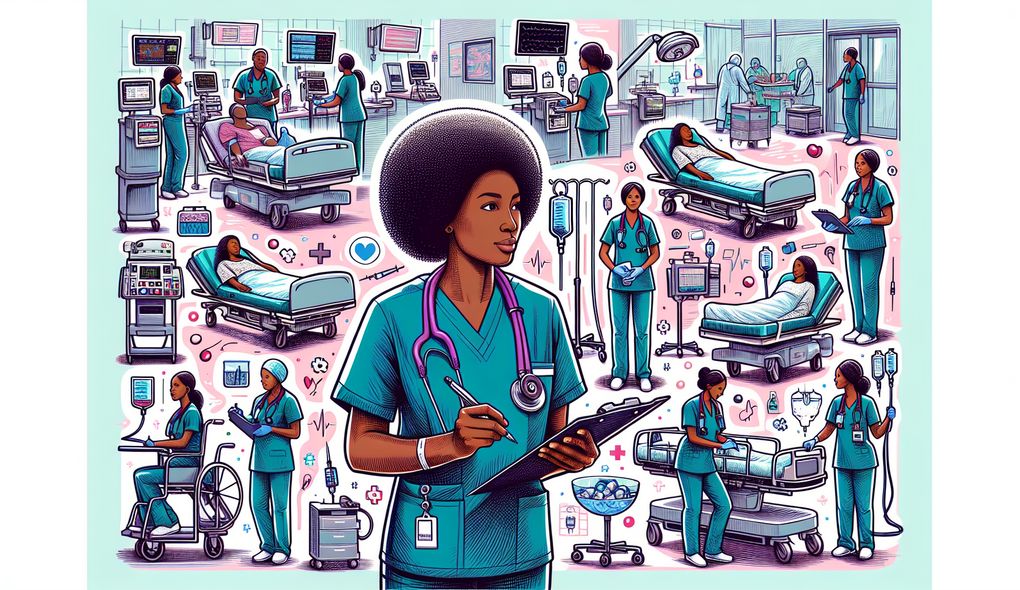How do you stay updated on the latest trauma nursing practices and protocols?
SENIOR LEVEL

Sample answer to the question:
To stay updated on the latest trauma nursing practices and protocols, I make it a priority to attend relevant conferences and seminars. These events provide valuable insights into new techniques, technologies, and research findings in trauma care. Additionally, I regularly engage in professional development activities, such as reading medical journals, participating in online courses, and joining nursing associations. This allows me to stay informed about the latest advancements in trauma nursing. Furthermore, I actively seek out opportunities to collaborate with colleagues and specialists in the field, as their expertise can greatly enhance my knowledge and skills in trauma care.
Here is a more solid answer:
As a trauma nurse, I understand the importance of staying updated on the latest practices and protocols to provide optimal care to my patients. To ensure I have the necessary clinical expertise, I actively seek out opportunities for advanced training and certification programs. For example, I have completed certification courses in Advanced Cardiac Life Support (ACLS) and Trauma Nursing Core Course (TNCC). These courses not only enhance my knowledge but also expose me to the latest evidence-based practices in trauma care. Additionally, I stay connected with professional nursing associations, such as the Emergency Nurses Association, which provides access to industry-leading publications and resources. Attending national conferences and regional workshops allows me to learn from experts in the field and stay updated on emerging trends. Furthermore, I actively participate in online forums and discussion boards, engaging with fellow trauma nurses and sharing best practices. By building a strong network of colleagues, I can collaborate on challenging cases, exchange knowledge, and stay informed on the latest research findings. By continuously expanding my clinical expertise through learning opportunities and effective networking, I ensure that I am always knowledgeable about the latest trauma nursing practices and protocols.
Why is this a more solid answer?
The solid answer provides specific details and examples to demonstrate the candidate's clinical expertise, commitment to continual learning, and effective networking and collaboration skills. The candidate mentions specific certifications they have obtained and how those certifications enhance their knowledge in trauma care. They also highlight their involvement in professional nursing associations and attending conferences and workshops to stay updated on emerging trends. Additionally, the candidate emphasizes their active participation in online forums and discussion boards to engage with fellow trauma nurses and share knowledge. However, the answer could be further improved by providing more examples of collaboration with colleagues and specialists in the field to enhance their networking and collaboration skills.
An example of a exceptional answer:
Staying updated on the latest trauma nursing practices and protocols is crucial for providing the highest level of care to patients. As a dedicated trauma nurse, I take a comprehensive approach to ensure my knowledge and skills are current. First and foremost, I prioritize ongoing education and professional development. In addition to holding certifications in Advanced Cardiac Life Support (ACLS) and Trauma Nursing Core Course (TNCC), I actively pursue specialized training opportunities, such as advanced trauma workshops and simulation exercises. These experiences not only deepen my understanding of current practices but also allow me to refine my clinical skills in a realistic and immersive environment. Furthermore, I believe in the power of collaboration and continuous learning from my peers. To foster this, I actively seek out mentorship relationships with experienced trauma nurses who are renowned in the field. These mentors provide invaluable guidance, share their expertise, and challenge me to expand my knowledge base. Additionally, I engage in interdisciplinary collaboration by regularly participating in case reviews and joint training exercises with physicians, surgeons, and other healthcare professionals. This collaborative approach ensures that I am up-to-date on the latest research and protocols across various medical specialties, allowing me to provide well-rounded and comprehensive care to my trauma patients. By combining ongoing education, mentorship, and interdisciplinary collaboration, I remain at the forefront of trauma nursing practices and protocols.
Why is this an exceptional answer?
The exceptional answer demonstrates the candidate's exceptional commitment to staying updated on trauma nursing practices and protocols. The candidate goes beyond the basic and solid answers by highlighting their participation in specialized training opportunities, such as advanced trauma workshops and simulation exercises. They also emphasize the importance of mentorship and collaboration with experienced trauma nurses and interdisciplinary healthcare professionals. This not only demonstrates their commitment to continuous learning but also showcases their excellent networking and collaboration skills. The candidate's comprehensive approach to ongoing education, mentorship, and interdisciplinary collaboration sets them apart as an exceptional candidate for the role of a trauma nurse.
How to prepare for this question:
- Research trauma nursing organizations and associations to identify relevant conferences, workshops, and resources.
- Seek out certification programs and training opportunities specific to trauma nursing.
- Connect with experienced trauma nurses and professionals in the field to establish mentorship relationships.
- Actively participate in online forums and discussion boards to engage with fellow trauma nurses and share knowledge.
- Stay updated on the latest research and protocols across various medical specialties to provide well-rounded care to trauma patients.
What are interviewers evaluating with this question?
- Clinical expertise
- Continual learning
- Networking and collaboration

